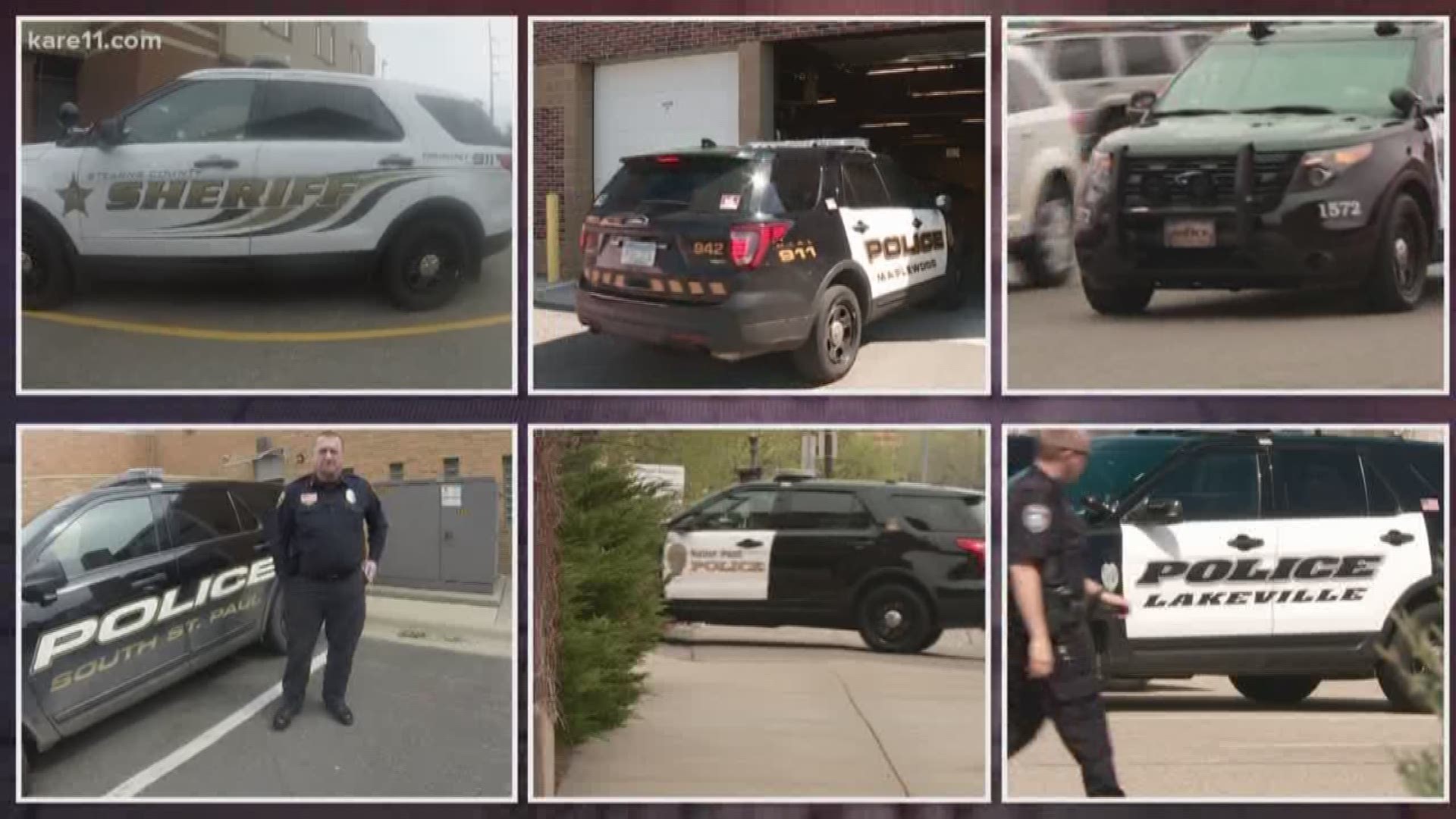New records uncovered in the wake of a year-long KARE 11 investigation are raising questions about how well an agency that is supposed to enforce state contracts is protecting your tax dollars.
A KARE 11 review of police car purchasing records reveals hundreds of thousands of dollars in questionable charges on more than 2,000 specially equipped police squad cars sold to law enforcement agencies across Minnesota.
The new findings are in addition to the overcharges KARE 11 exposed last year in an investigation we called “Double Billing the Badge.” That investigation prompted a criminal investigation – and refunds of more than three-quarters of a million dollars.
Thousands of squad car purchases questioned
From police and sheriff’s departments to state patrol, Minnesota law enforcement buys thousands of squad cars.
But when KARE 11 put a spotlight on those purchases, we found the numbers just don’t add up.
“These numbers don’t match. Not even close,” said Steve Kleiber. He’s retired now, but he has a background in both fleet sales and law enforcement.

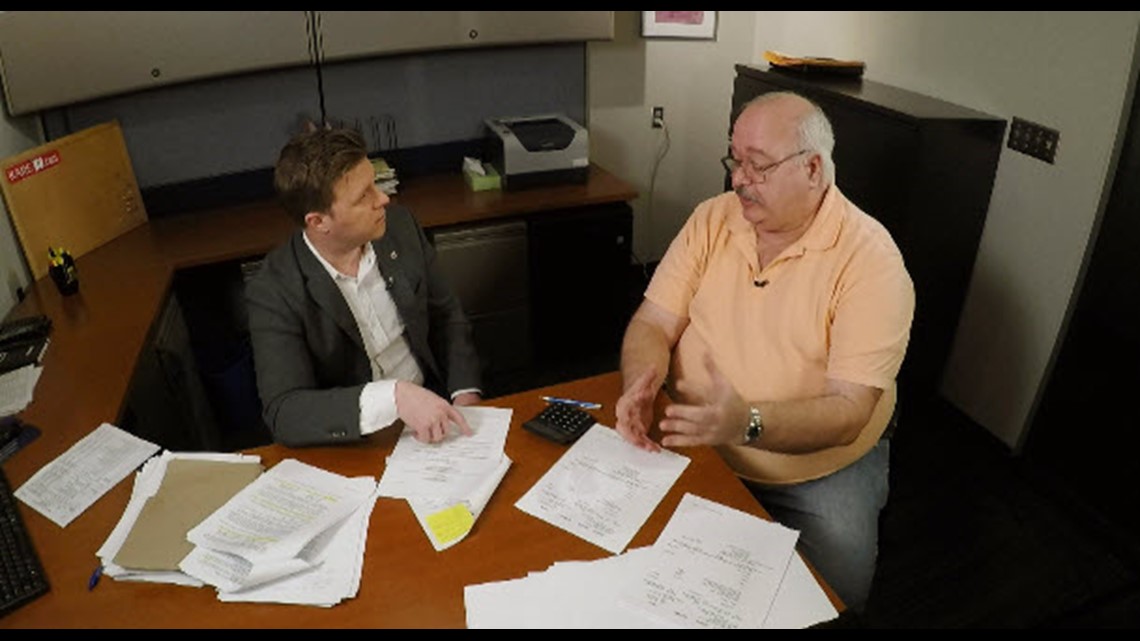
Kleiber is the whistleblower who raised questions last year when he suspected Nelson Auto Center in Fergus Falls of double billing for options like spotlights and heated mirrors on squad cars.
KARE 11 investigated and discovered Kleiber was right.
After our reports, the state launched a criminal investigation. Gerry Worner, Nelson Auto’s long-time fleet manager, was fired and later charged in a multi-year scheme of Theft by Swindle. He entered a guilty plea in May and is scheduled to be sentenced in July.
No one else from the dealership was charged. The owners say they cooperated with the investigation and with an official state audit of squad car sales dating back to 2010.
The audit found that more than 200 police agencies had been overcharged on 3,225 vehicles. As a result, Nelson Auto has been sending refund checks totaling $803,309.
New records raise new questions
That’s a lot of money. But new documents obtained by KARE 11 raise questions about whether officials at the Minnesota Department of Administration missed hundreds of thousands of dollars in other taxpayer overcharges.
“It’s pretty obvious,” said Kleiber as he pored over invoices showing what Ford charged Nelson Auto for a car, and then what the dealership charged police agencies.
KARE 11 obtained the invoices through an open records request. We asked Kleiber to review them for possible discrepancies.
“Can you tell us based on these invoices what the profit made by Nelson Auto was?” asked KARE 11 reporter A. J. Lagoe.
“Sure,” Kleiber replied.
After crunching the numbers on the invoices for a 2015 Ford police SUV sold to St. Louis Park, Kleiber discovered a surprising total.
“So, they made a total of $1,143.87 profit on this one vehicle,” he said.
That’s significant because Nelson Auto won the state contract to sell the Ford SUVs by saying it would make a fixed profit of just $224.94 per vehicle.
It’s called the “Total Bid Constant” or TBC – and the contract defines it as “All dealer profit.”

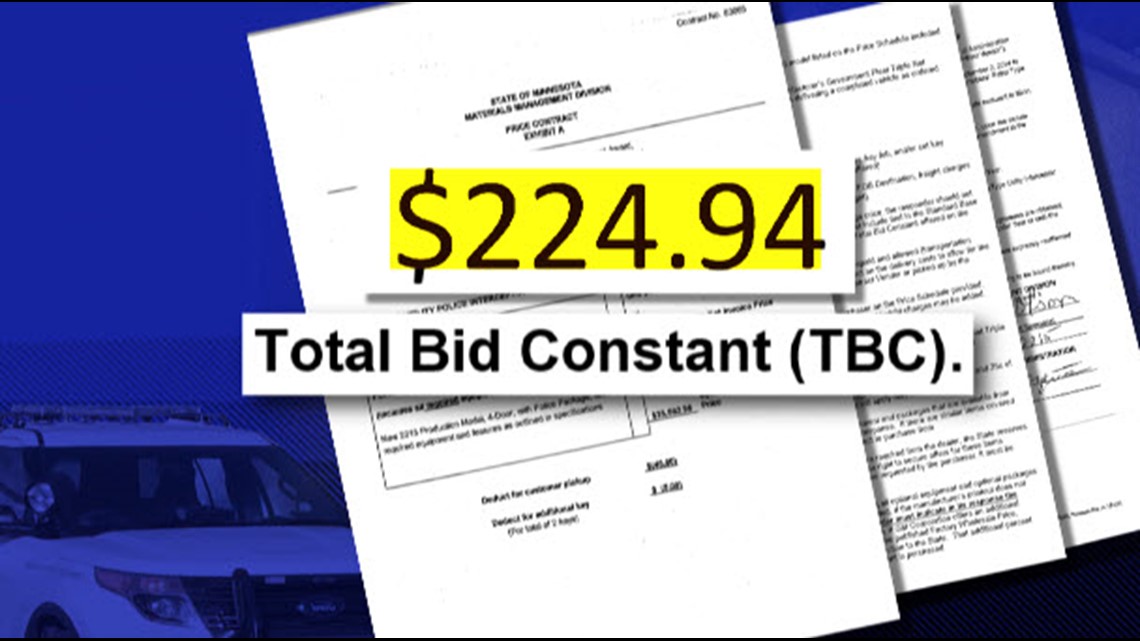
Outside expert reviews the contract
KARE 11 wanted the opinion of an outside expert, so we took the Nelson Auto contract and all the amendments to Mark Becker, a private attorney with the Minneapolis law firm Fabyanske Westra Hart & Thomson.
Becker specializes in government purchasing contracts.
We wanted to know the meaning of "all dealer profit" in the definition of Total Bid Constant.
“What’s the legal definition of all profit?” KARE 11 asked.
“It really does mean what it says,” Becker said. “I mean, ‘all’ means all. And it’s as easy as that.”
But time after time, when Steve Kleiber examined the actual invoices KARE 11 obtained from the state, he discovered Nelson Auto was making much more than $225.
“$1,253.80,” Kleiber said, reviewing the paperwork for a 2017 SUV sold to Dakota County.
“That’s what they made in profit off the one vehicle?” asked Lagoe.
“One vehicle,” Kleiber replied.

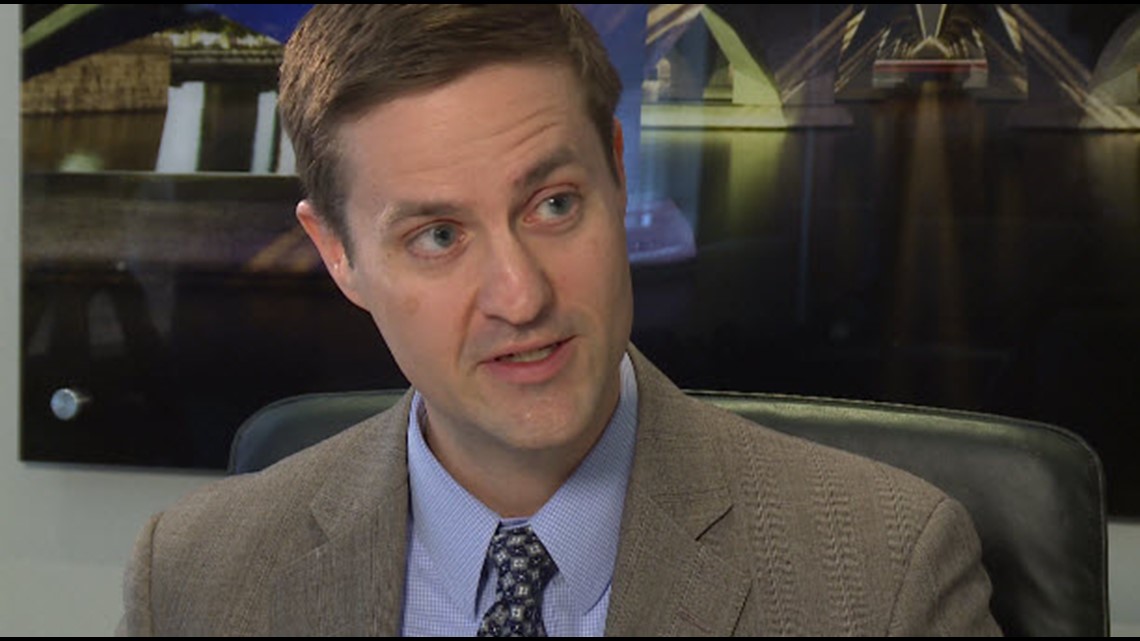
Some of the excess profit on police car sales is due to the double billing KARE 11 exposed last year. But the invoices reveal other problems state officials apparently missed.
The Government Price Concession
Ford gives dealers an additional discount when they sell to government agencies like police departments. It is called the Government Price Concession or GPC.
Records show Nelson Auto listed it at $2,900 on their bid for the state contract. But the invoices KARE 11 obtained show they actually received $3,056.
That’s an extra $156 per car. On 2,396 sales, that adds up to $373,776.
Nelson’s contract says any increase to the GPC “must be immediately passed on to the State.”
But officials tell KARE 11 that did not happen.

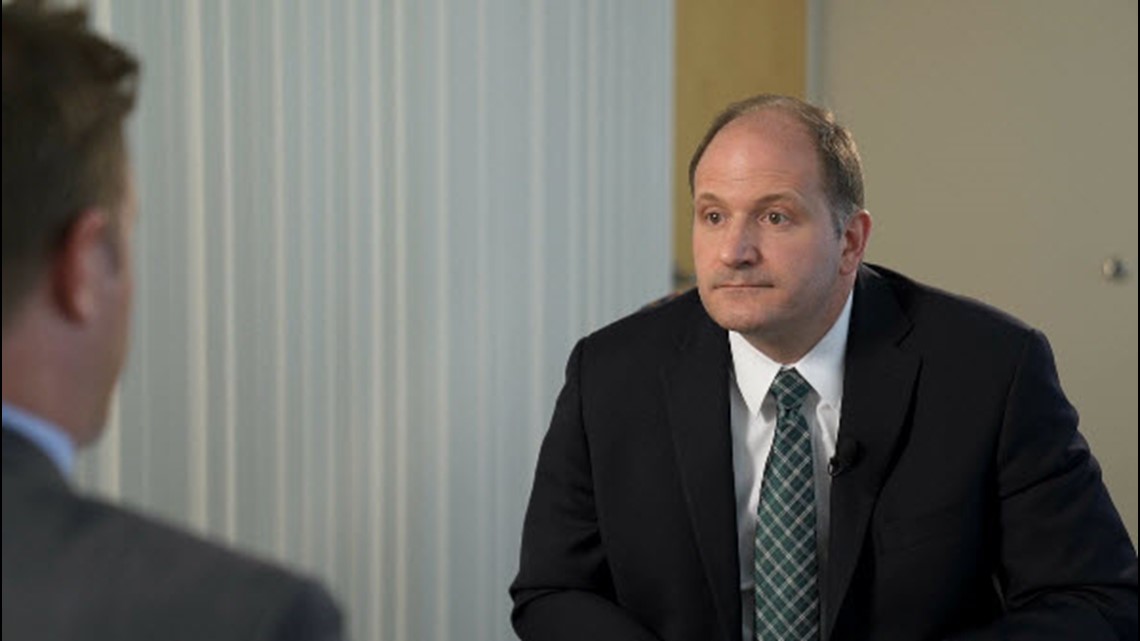
“Did at any point Nelson Auto inform the state that they were getting more money from Ford on the GPC?” asked reporter Lagoe.
“They did not,” replied Curt Yoakum, the Assistant Commissioner of the Minnesota Department of Administration. That’s the agency responsible for awarding – and enforcing – state contracts.
And the GPC issue is not the only discrepancy state officials did not know about.
The Extra 2017 Profit
KARE 11 also discovered that Nelson Auto tripled its profit on some sales in 2017.
The dealership got the state to amend the contract because Ford was increasing prices. While the amendment allowed the price hike, it stated: “Except as herein amended, the provisions of the original Contract between the parties hereto are expressly reaffirmed and remain in full force and effect.”
However, records show Nelson pre-ordered cars at the old price level then billed police departments like Rosemount at the new higher price.
The invoices show that gave Nelson Auto an extra profit of $750 per car above the original $225 limit. It netted the dealership an extra $135,000 state officials did not know about until KARE 11 told them.
“It’s definitely not within the spirit of the contract,” Assistant Commissioner Yoakum said.
The Hidden Holdback
And, finally, KARE 11 documented what fleet sales expert Steve Kleiber calls a hidden holdback.
“On the St. Louis Park, it’s $232,” Kleiber said as he reviewed another invoice.
The holdback is an extra four-percent discount that Ford gave the dealer on factory-installed optional equipment like air conditioning and rear-view cameras.
“You’d be making more on the options than what you’re supposed to make profit on the entire vehicle,” Kleiber calculated.
The original contract Nelson Auto signed said dealers were required to submit a printout of optional equipment listing the “lowest manufacturer to dealer price available.” It goes on to say that if there is an “additional percent deduction” for dealers, it must be indicated and given to the State.
“That has to be disclosed to the state and passed along,” said Mark Becker, the private attorney specializing in government purchasing contracts.
“Has to?” KARE 11 asked.
“Well, that’s what the contract says,” Becker replied.
But state officials say they were not told about the hidden holdback either.
“Was any percent deduction disclosed to the state?” reporter Lagoe asked.
“No,” Yoakum replied.
Although the exact amount would vary from car to car based on which options were ordered, Steve Kleiber estimates that extra discount could total hundreds of thousands of dollars.
“Money that you believe belongs to taxpayers?” KARE 11 asked.
“Yes. Absolutely, according to the contract,” Kleiber said.
Official State reaction
At first, the state Department of Administration fired off a letter to Nelson Auto calling the extra profit a “Potential Additional Overcharge” and the GPC issue a “Potential Contract Violation.”
Dealership owner Brent Nelson replied to the state, acknowledging the GPC discrepancy. But he said the GPC “overpayment” was Ford’s mistake – and Ford, rather than taxpayers, should get that $370,776.
“They’ve made the claim that that is money owed to them,” Yoakum said about Ford’s position.

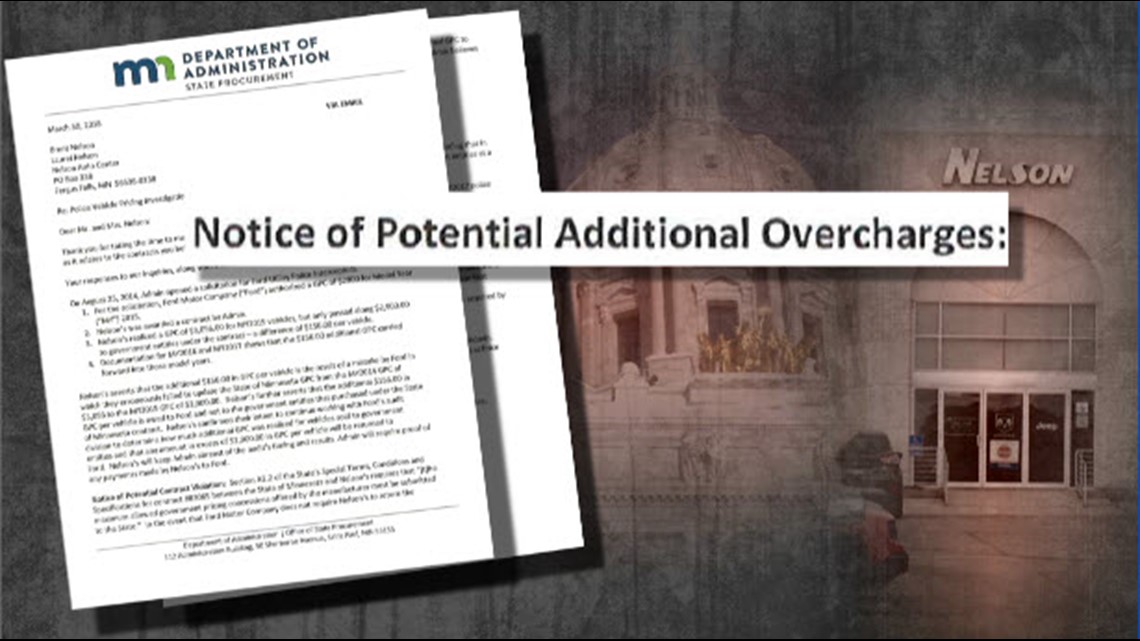
Ford declined comment, describing Government Price Concessions as “a proprietary arrangement between Ford Motor Company and its authorized dealers.”
As for that extra $750 per car profit, Nelson Auto told the state that the dealership warned buyers the price hike was coming. Nelson added that police agencies paid “the price that existed under the contract at the time the vehicle was purchased.”
And on that point – and on the hidden holdback – the state seems to be backing down.
Despite the letter it sent to the dealership, the Department of Administration now takes the position that when it renewed the contract with Nelson Auto, the $225 cap on dealer profit – the “Total Bid Constant” – went out the window.
“Even though the amendment says all prices, terms and conditions remain unchanged, they changed?” reporter A. J. Lagoe asked.
“On that amendment, yes,” Yoakum replied.
In the long run, Yoakum says that allowing a little flexibility on profit encourages more bidders and greater competition.
“It also was never our intention to completely eliminate profit from the options,” he said.
“That’s not the way I read the contract,” said Becker, the private attorney.
In the eyes of both Becker and fleet sales expert Steve Kleiber, Minnesota taxpayers are being taken for a ride.
“The cities and counties are trusting them to do the right thing and getting them the best price,” Kleiber said. “Obviously that didn’t happen here.”
Nelson Auto response
Nelson Auto’s owners declined to be interviewed, citing a pending lawsuit the dealership filed against KARE 11 claiming the station defamed them in our past reporting.
In a written statement, they told us they believe the dealership “complied with the end-user requirements of the State contracts” and that they continue to work with Ford and the State on what they call “cost reconciliation.”
If you have a suggestion for an investigation, or want to blow the whistle on fraud or government waste, email us at: investigations@kare11.com

